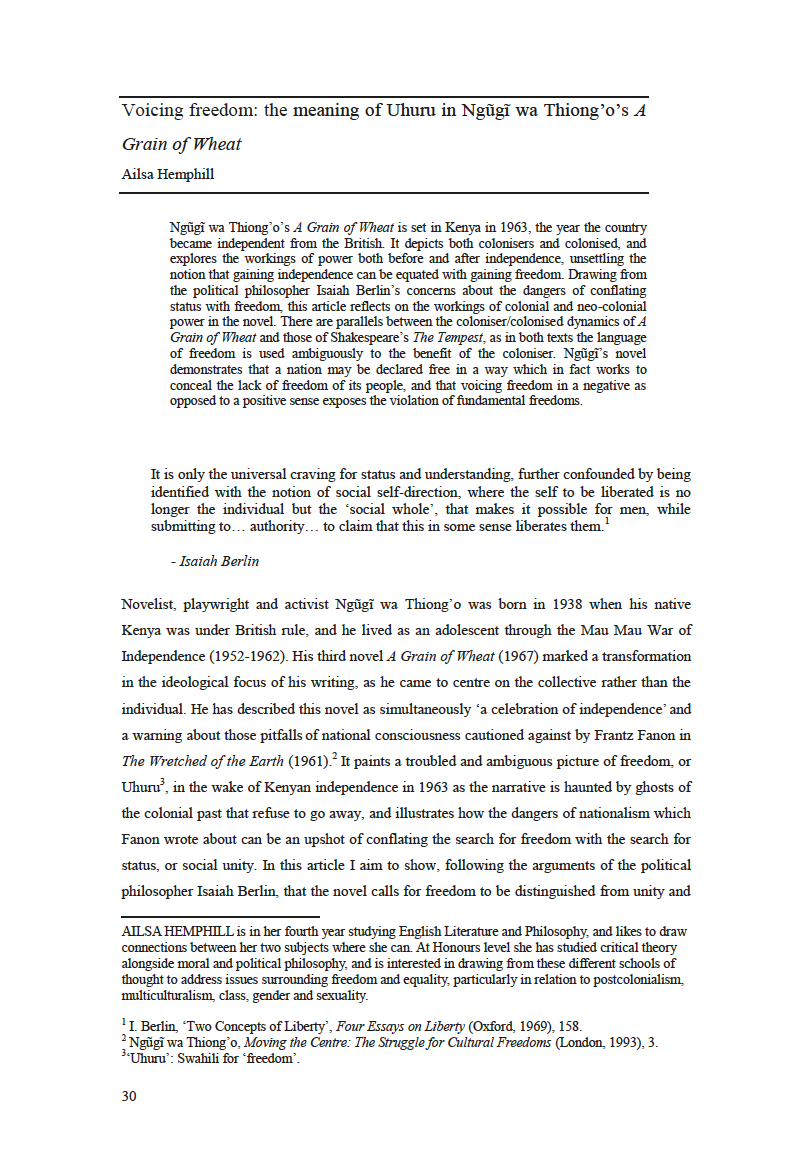Voicing freedom
the meaning of Uhuru in Ngũgĩ wa Thiong’o’s A Grain of Wheat
DOI:
https://doi.org/10.36399/GroundingsUG.6.226Keywords:
Ngũgĩ wa Thiong’o, A Grain of Wheat, Kenya, Colonisation, Independence, Uhuru, Dynamics, The TempestAbstract
Ngũgĩ wa Thiong’o’s A Grain of Wheat is set in Kenya in 1963, the year the country became independent from the British. It depicts both colonisers and colonised, and explores the workings of power both before and after independence, unsettling the notion that gaining independence can be equated with gaining freedom. Drawing from the political philosopher Isaiah Berlin’s concerns about the dangers of conflating status with freedom, this article reflects on the workings of colonial and neo-colonial power in the novel. There are parallels between the coloniser/colonised dynamics of A Grain of Wheat and those of Shakespeare’s The Tempest, as in both texts the language of freedom is used ambiguously to the benefit of the coloniser. Ngũgĩ’s novel demonstrates that a nation may be declared free in a way which in fact works to conceal the lack of freedom of its people, and that voicing freedom in a negative as opposed to a positive sense exposes the violation of fundamental freedoms.

Downloads
Published
Issue
Section
License
Copyright (c) 2013 Ailsa Hemphill

This work is licensed under a Creative Commons Attribution 4.0 International License.
The CC BY 4.0 license is a Creative Commons license. This is a non-copyleft free license that is good for art and entertainment works, and educational works. It is compatible with all versions of the GNU GPL; however, like all CC licenses, it should not be used on software. People are free to: Share — copy and redistribute the material in any medium or format; Adapt — remix, transform, and build upon the material for any purpose, even commercially. The licensor cannot revoke these freedoms as long as you follow the license terms. But they must conform to the following terms: Attribution — You must give appropriate credit, provide a link to the license, and indicate if changes were made. You may do so in any reasonable manner, but not in any way that suggests the licensor endorses you or your use. No additional restrictions — You may not apply legal terms or technological measures that legally restrict others from doing anything the license permits.
Please check individual article PDF copies to see if any additional restrictions apply.







